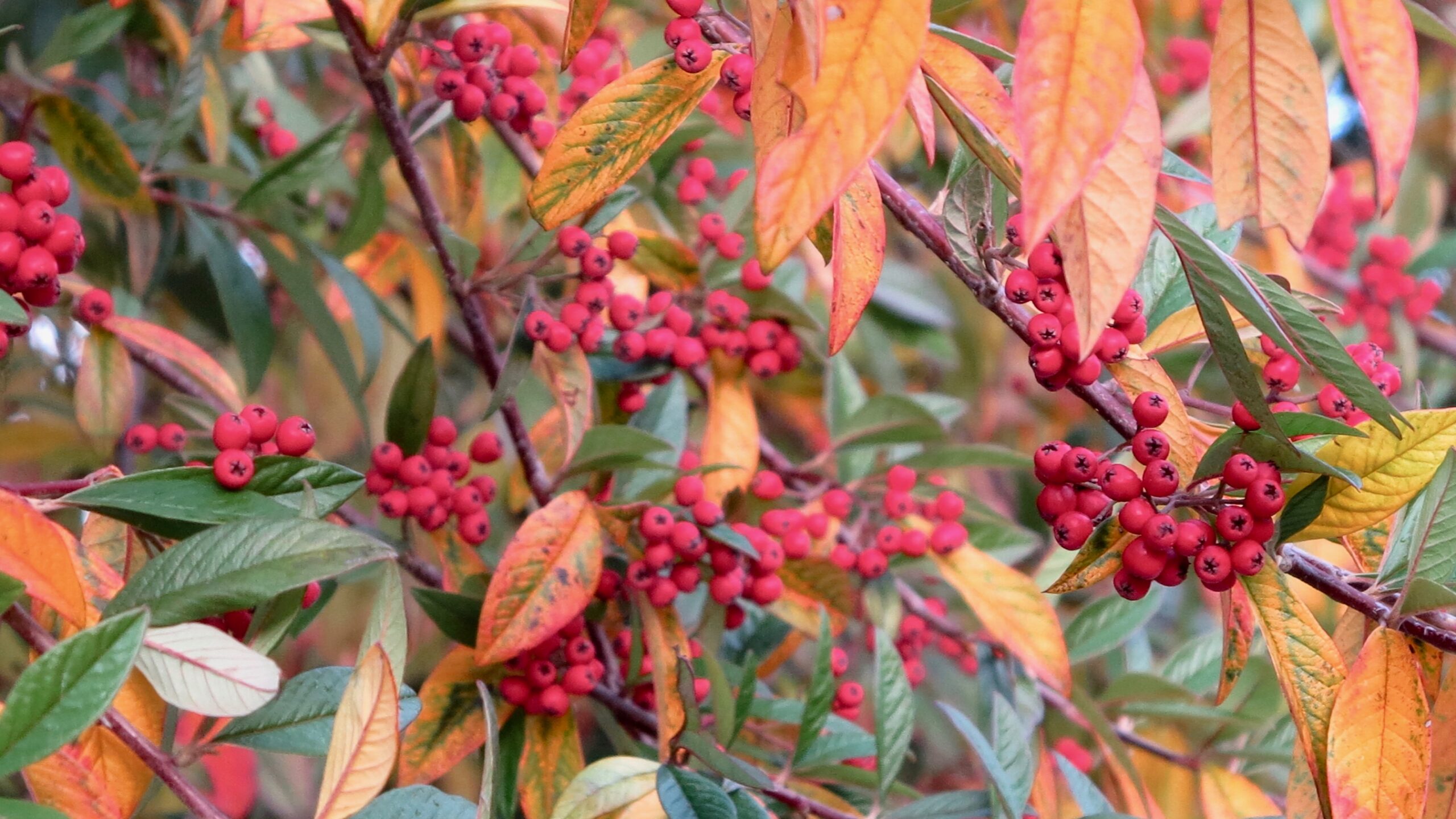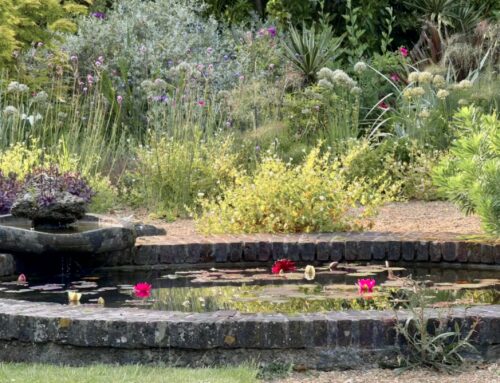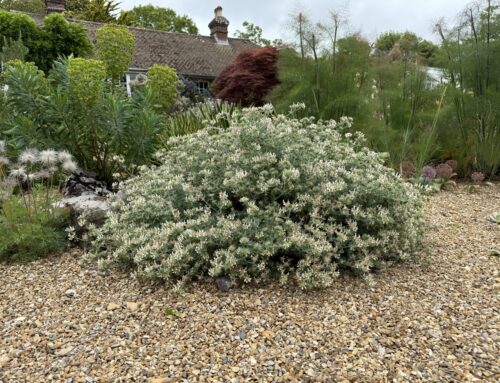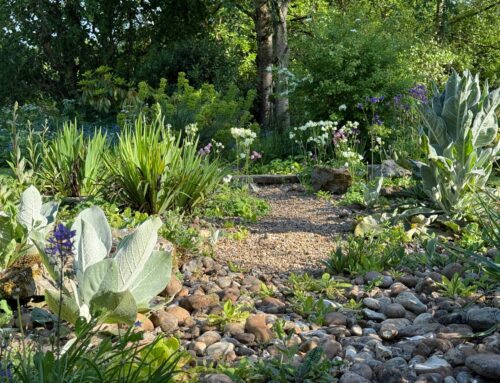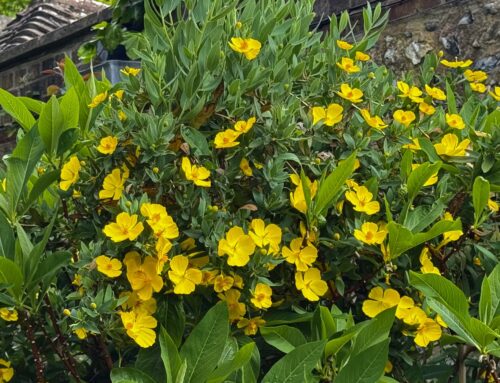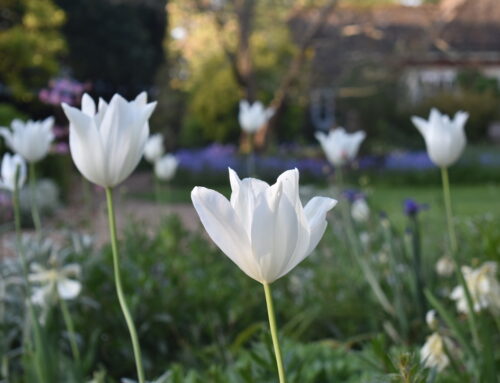It’s autumn and the garden is slowing down; alas, the Gardeners are not. Many winter projects are planned in addition to the routine seasonal tasks and, in this, the second year of our Biodiversity Programme we’re increasing our efforts to attract and protect wildlife.
In the south-east we are lucky to have such a diversity of bird species relative to other parts of the country, according to the British Trust for Ornithology (BTO). I like to think that Denmans, with its many large trees and shrubs invites a wide range of bird species and encourages them to inhabit and settle. An example of this was the brood of Great Spotted Woodpeckers that were raised in a Malmo woodpecker nest box earlier this year, installed by the Denmans team.
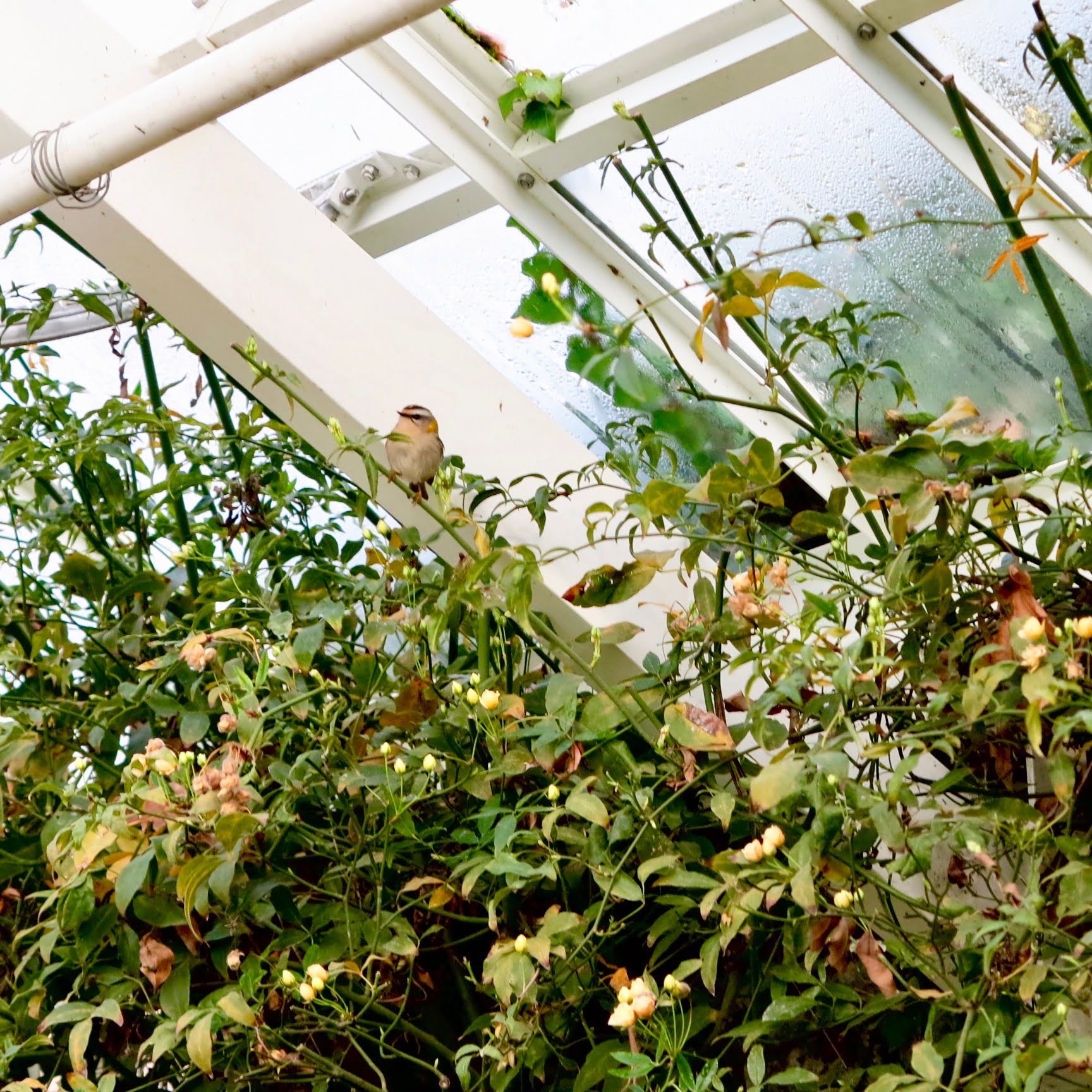
The easiest and most obvious thing we can do to support birds throughout the winter is to fill our bird feeders. This will coax visitors and provide rewarding opportunities for bird watching, their comings and goings, plus offering a chance to identify the different species enjoying your provisions. Ensure to vary the diet of your visitors – suet pellets, peanuts, seeds and grains. The fervent donor can finely chop bacon and cheese for wee Wrens and other small birds like the Goldcrest, the UK’s smallest bird. This is one we should be especially looking out for at the moment as they are migrating to the UK from Scandinavia to enjoy our winter.
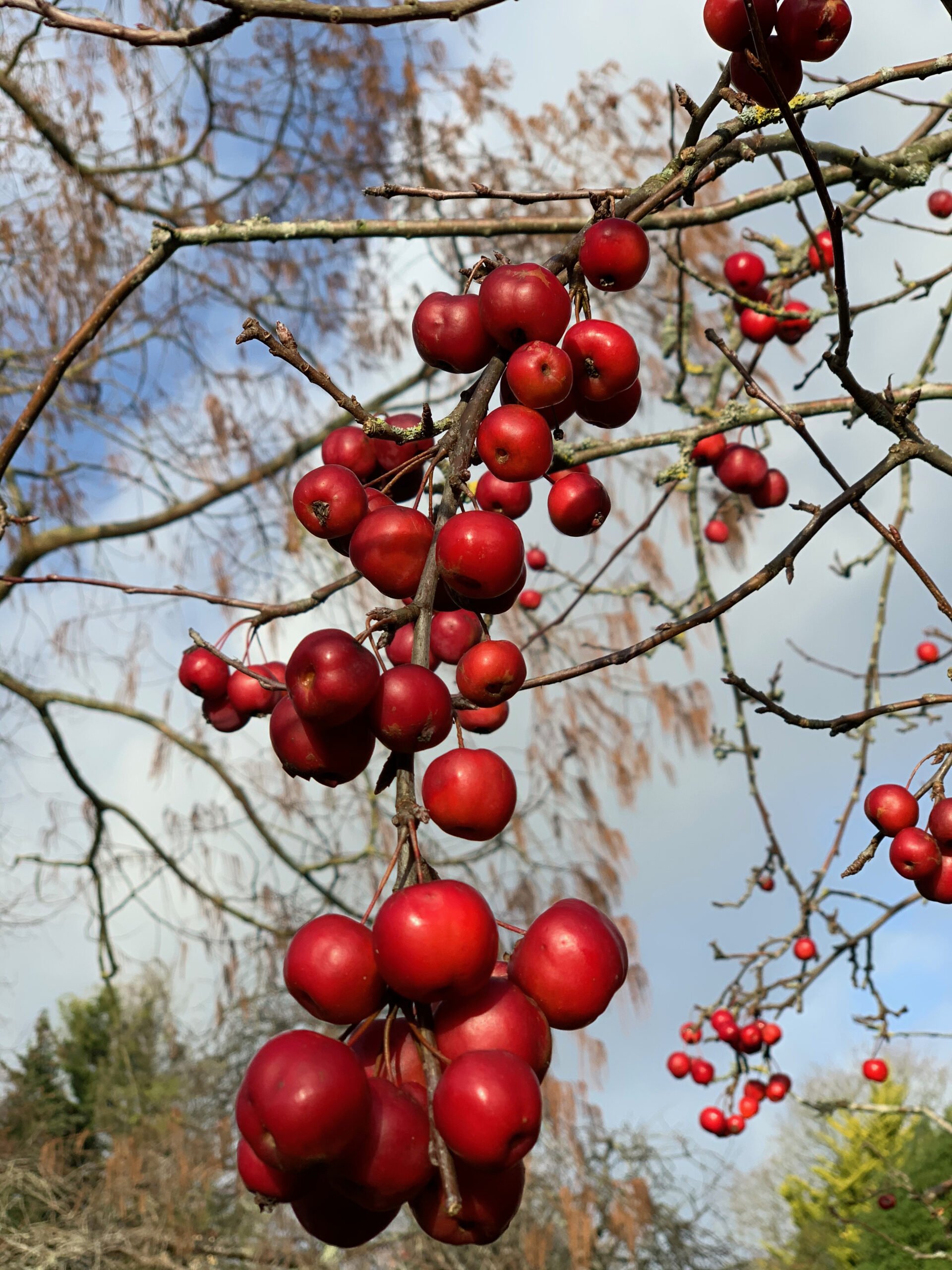
Crabapples are ideal food for black birds.
In fact, it is banquet time for birds right now. Here at Denmans, not only do we spoil them with the sustenance discussed above, the garden itself provides a feast of berries for their nourishment. To name a few, munching/snacking can be seen on our Cotoneaster, Pyracantha, Mahonia and Sambucus. I could go on – crab apples supply winter food for blackbirds.
Birds taken care of, shallow containers of any kind can be placed around the garden, at ground level, to provide a source of water for other species of wildlife. It must not be forgotten that as temperatures fall the water will freeze so monitoring is required throughout the season.
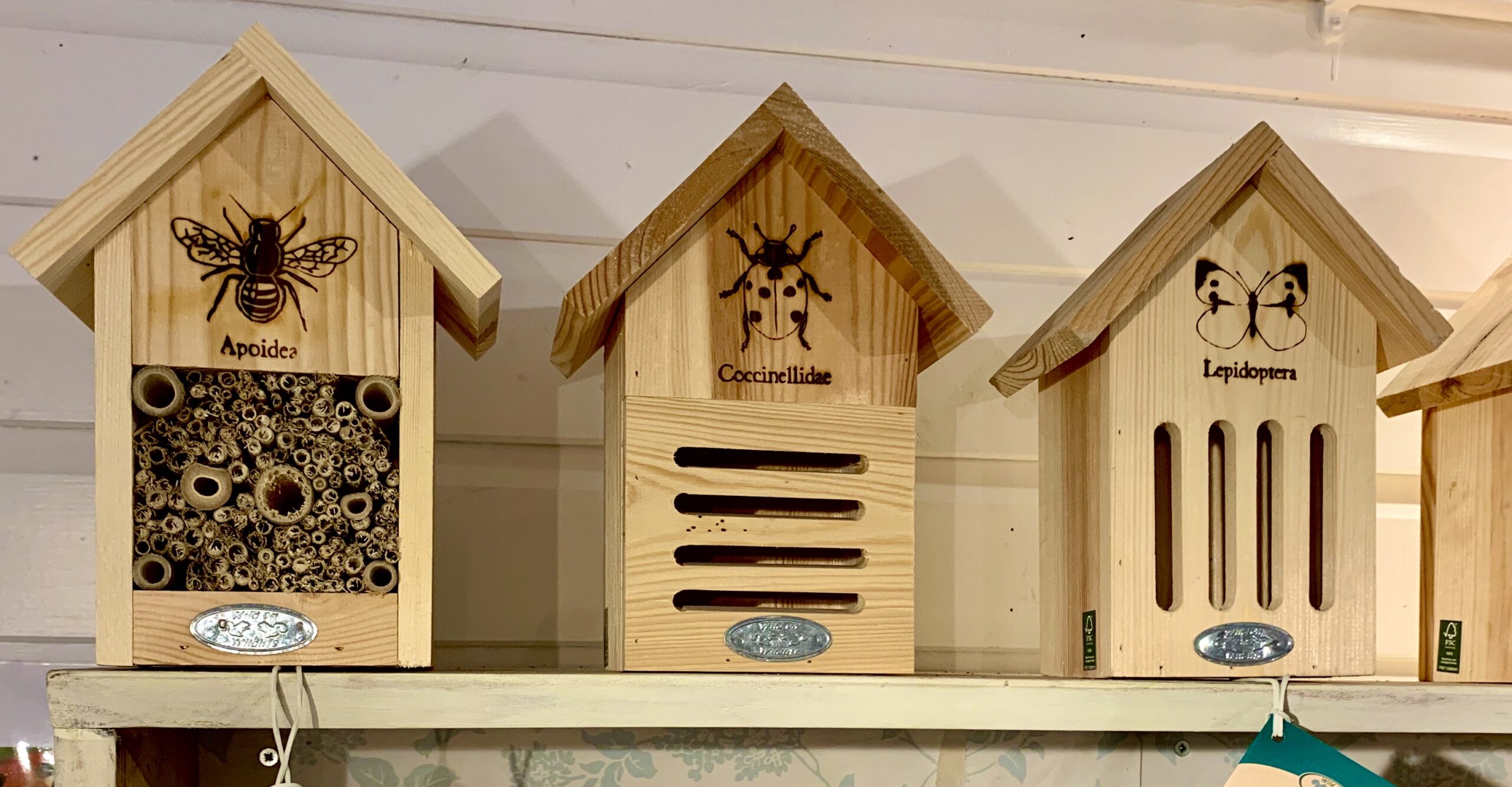
Installing insect boxes in the garden is a good way of offering protection for beneficial insects.
As part of out biodiversity efforts this year we shall be installing insect/bug hotels. These can be purchased in many different shapes, sizes and designs as some are species specific. A Google search will unveil the plethora of configurations available. Our hotels will become the homes of woodlice, hoverflies, moths, butterflies and solitary bees and wasps. They are especially helpful to ladybirds and lacewings who are vital natural pest controllers – they devour aphids!
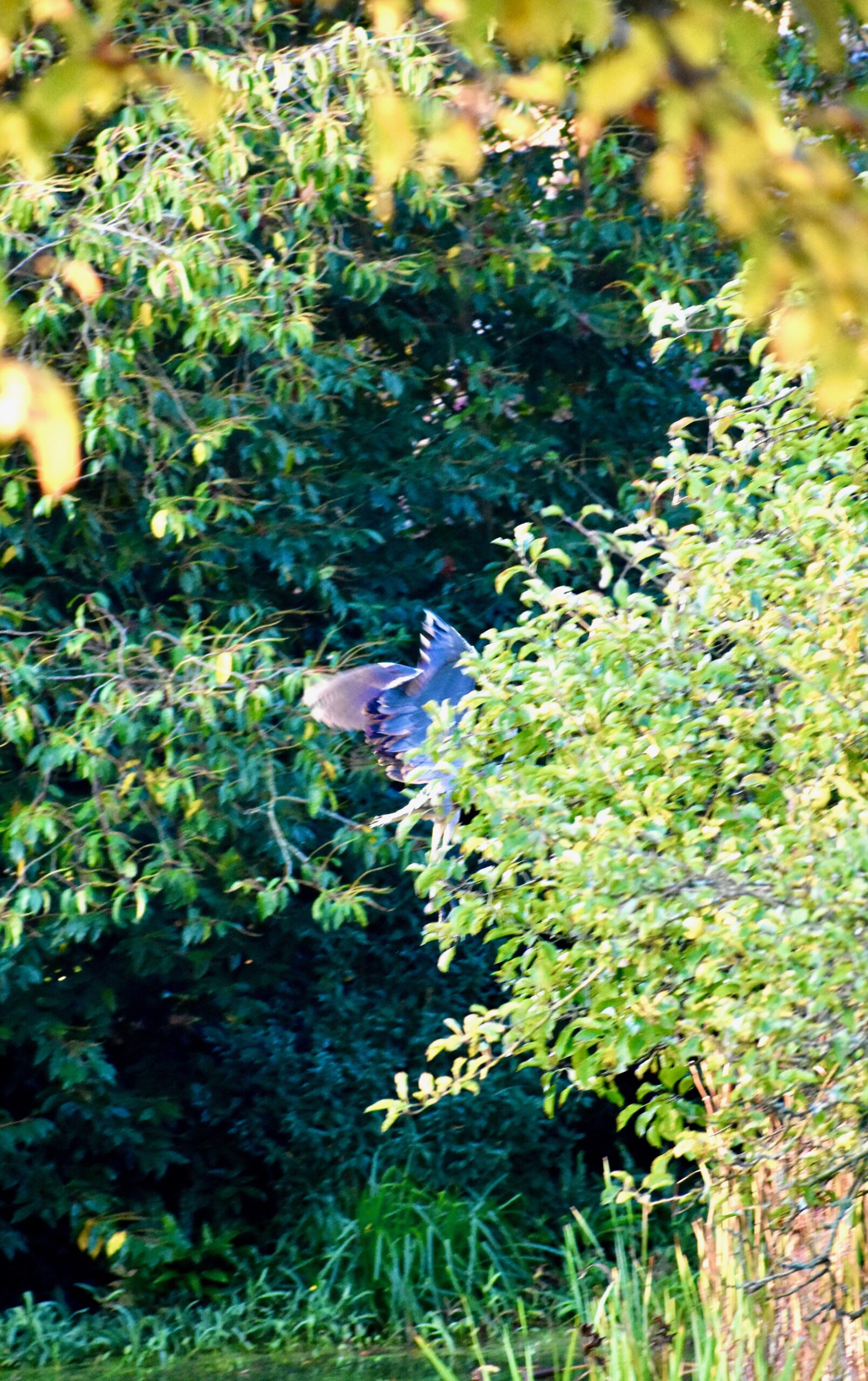
A startled heron seeks shelter in the shrubbery and trees behind the pond.
This week, after an absence of six months, a pair of ducks (a Mallard and his lady) appeared on the large pond at the southern end of the garden. Obviously we cannot be certain that they are our previous sitting tenants who produced two broods last year. Nonetheless, it is most rewarding that they have taken up residence at Denmans. Watch this space as we plan to station a floating duck house just before breeding season. Here it must be mentioned that Gwendolyn startled a large blue heron by the pond last week: Further verification that if you provide the optimal environment the wildlife will find it.
So, Denmans will endeavour to provide, promote, monitor and sustain our garden’s biodiversity….phase by phase.
Karen Quinn
Assistant Gardener, Head of Biodiversity
PS. As this blog was in production, a green woodpecker was spotted flying across the garden, north of the cottage.

